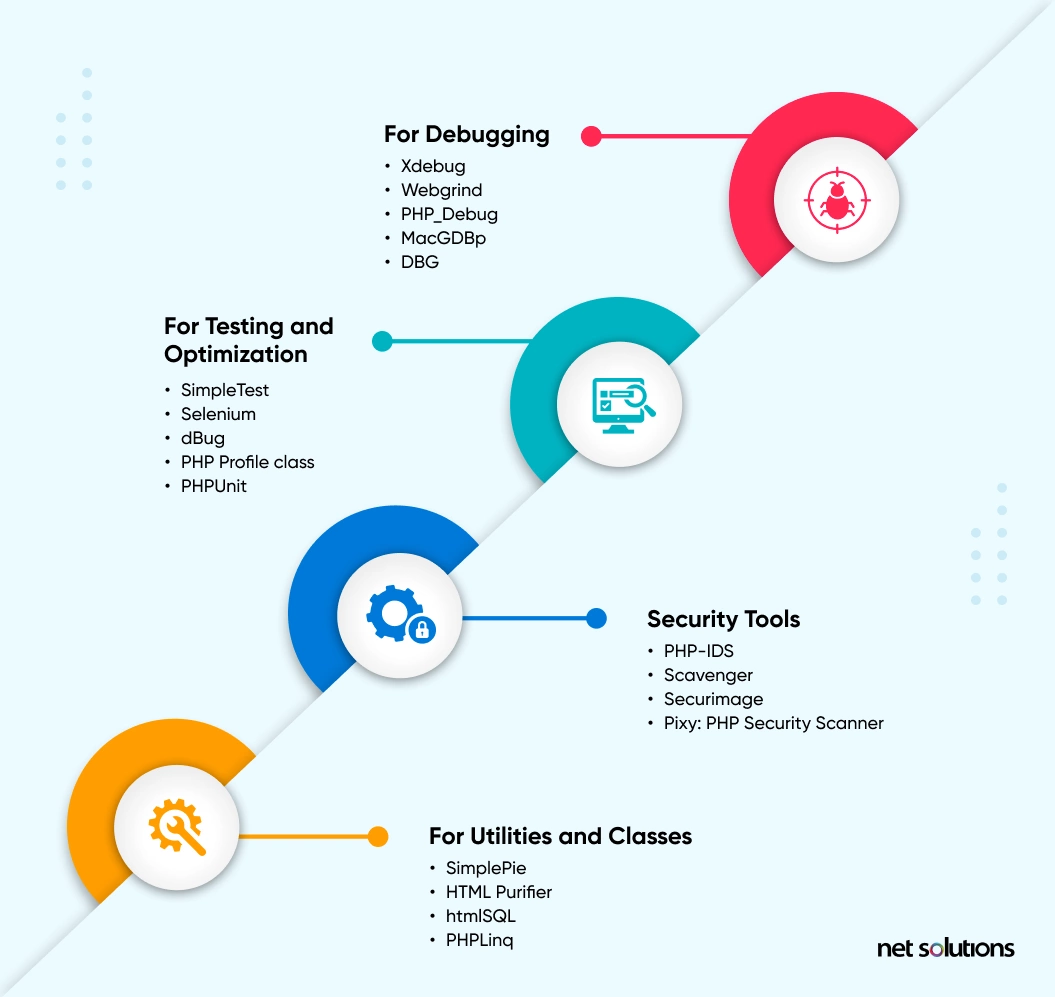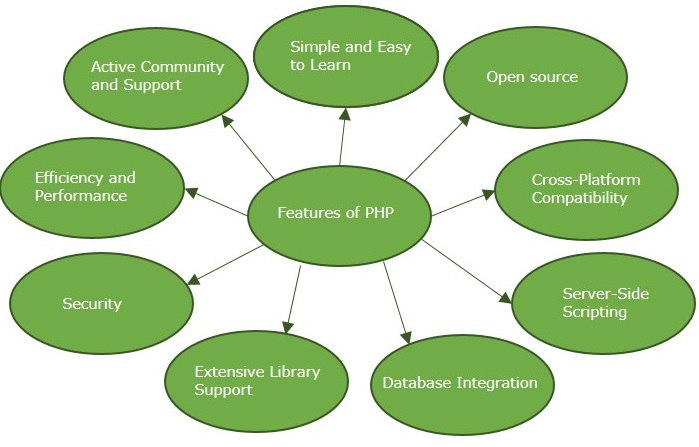what is PHP

PHP is a widely-used open-source scripting language that is especially suited for web development and can be embedded into HTML. It stands for Hypertext Preprocessor.
PHP is mainly used for server-side scripting, but can also be used as a general-purpose programming language. It can be used to create dynamic web pages, interact with databases, handle forms and cookies, and perform various other tasks on the server side.
Some common uses of PHP include creating user authentication systems, processing form data, generating dynamic content, and interacting with databases. It is a versatile language that is widely supported by web hosting providers and is used in a wide range of web applications.
Overall, PHP is a powerful and flexible language that is essential for web development and is a valuable skill for
why PHP

PHP is a server-side scripting language that is used for web development. It is a powerful tool for creating dynamic and interactive websites. PHP can be embedded into HTML code, making it easy to integrate with existing web pages.
There are several reasons why you should consider using PHP for web development:
1. Easy to Learn and Use: PHP is a relatively simple language to learn, especially for beginners. It has a syntax that is similar to other programming languages like C and Java, making it easy for developers to pick up.
2. Open Source: PHP is an open-source language, which means that it is free to use and there is a large community of developers who contribute to its development. This also means that there are a lot of resources available online
advantage of PHP
.png)
In 2024, PHP continues to be a popular programming language for web development, and there are several reasons why you might consider using it. Here are some advantages and disadvantages of using PHP in 2024:
Advantages:
1. Easy to learn and use: PHP is known for its simplicity and ease of use, making it a great choice for beginners and experienced developers alike.
2. Large community and resources: PHP has a large and active community of developers, which means there are plenty of resources, tutorials, and forums available to help you with your projects.
3. Compatibility: PHP is compatible with various operating systems and web servers, making it a versatile choice for building websites and web applications.
4. Fast performance: PHP is a server
disadvantage of PHP
.png)
As of 2024, PHP continues to be a popular programming language for web development, with many advantages and some disadvantages. Here are some reasons why you might consider using PHP in 2024:
Advantages of PHP in 2024:
1. Easy to learn and use: PHP is a beginner-friendly language, making it easy for developers to pick up and start building web applications quickly.
2. Large community and support: PHP has a vast community of developers who contribute to its ecosystem, providing resources, libraries, and frameworks to help streamline development.
3. Fast development: PHP is known for its rapid development capabilities, allowing developers to create dynamic and interactive web applications efficiently.
4. Cost-effective: PHP is an open-source language, meaning it
features of PHP

1. Dynamic Typing: PHP is a dynamically typed language, meaning variables do not have to be explicitly declared with a data type. This can make coding faster and more flexible.
2. Server-side Scripting: PHP is primarily used for server-side scripting, meaning it runs on the server and generates HTML code that is sent to the client’s browser.
3. Cross-platform Compatibility: PHP is compatible with most operating systems, including Windows, Linux, and macOS, making it a versatile language for web development.
4. Database Support: PHP has built-in support for a wide range of databases, including MySQL, PostgreSQL, and SQLite, making it easy to interact with databases in web applications.
5. Extensive Library Support: PHP has a vast library
what is compiler

A compiler is a software tool that translates high-level programming languages into machine code that can be executed by a computer. It takes the source code written by a programmer and converts it into a set of instructions that can be understood and executed by the computer’s processor. This process is known as compilation. Compilers are essential for software development as they enable programmers to write code in a more human-readable form and then have it translated into the machine language that the computer can understand and execute.
what is assembler

Assembler is a type of computer program that translates assembly language code into machine code that can be executed by a computer’s processor. Assembly language is a low-level programming language that is specific to a particular computer architecture.
Example:
Here is an example of a simple assembly language program that adds two numbers:
“`
section .data
num1 db 10
num2 db 20
section .text
global _start
_start:
mov al, [num1]
add al, [num2]
ret
“`
Advantages of using an assembler:
1. Assembler programs are faster and more efficient than programs written in higher-level languages.
2. Assembler allows for direct manipulation of hardware resources and registers.